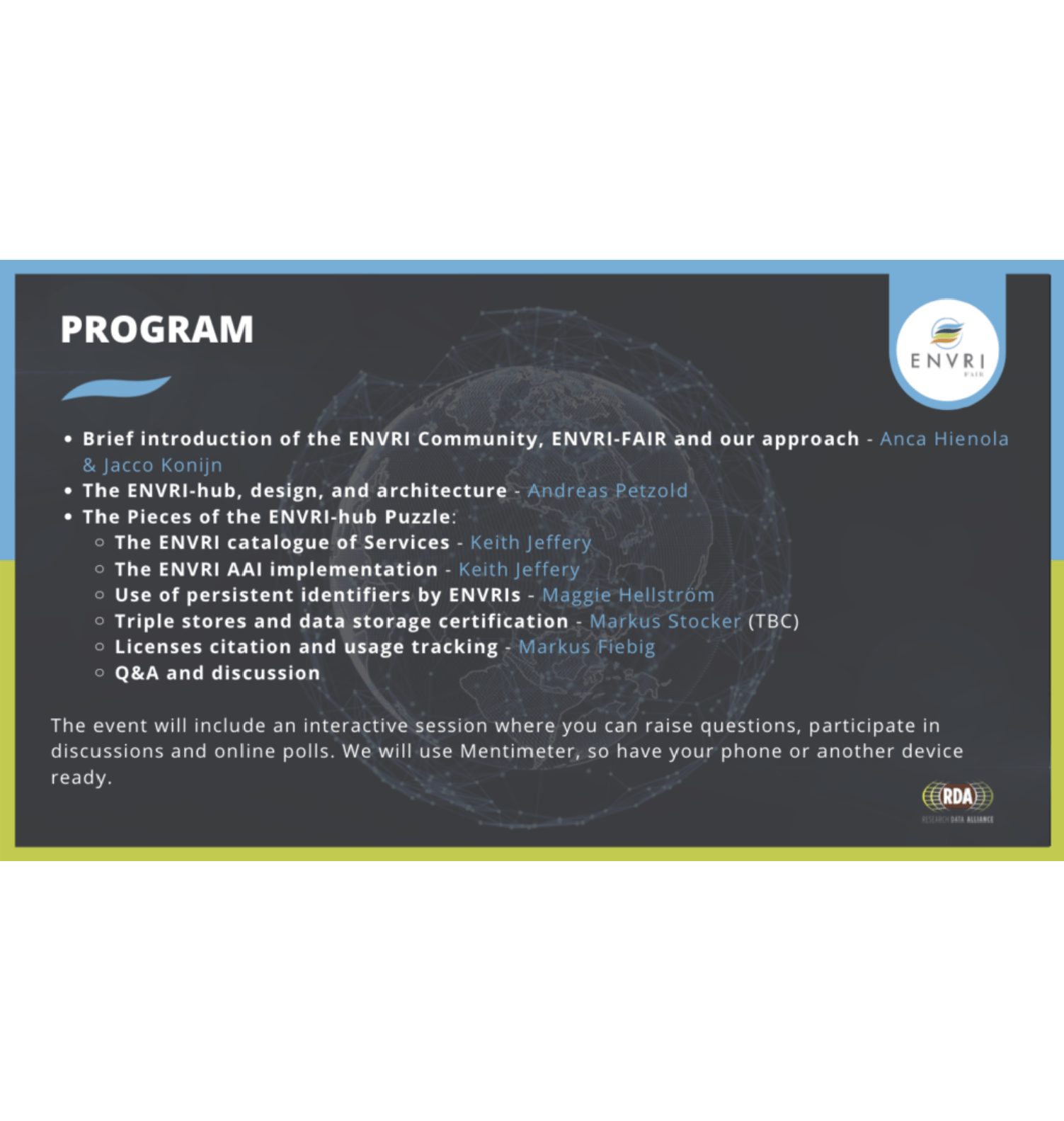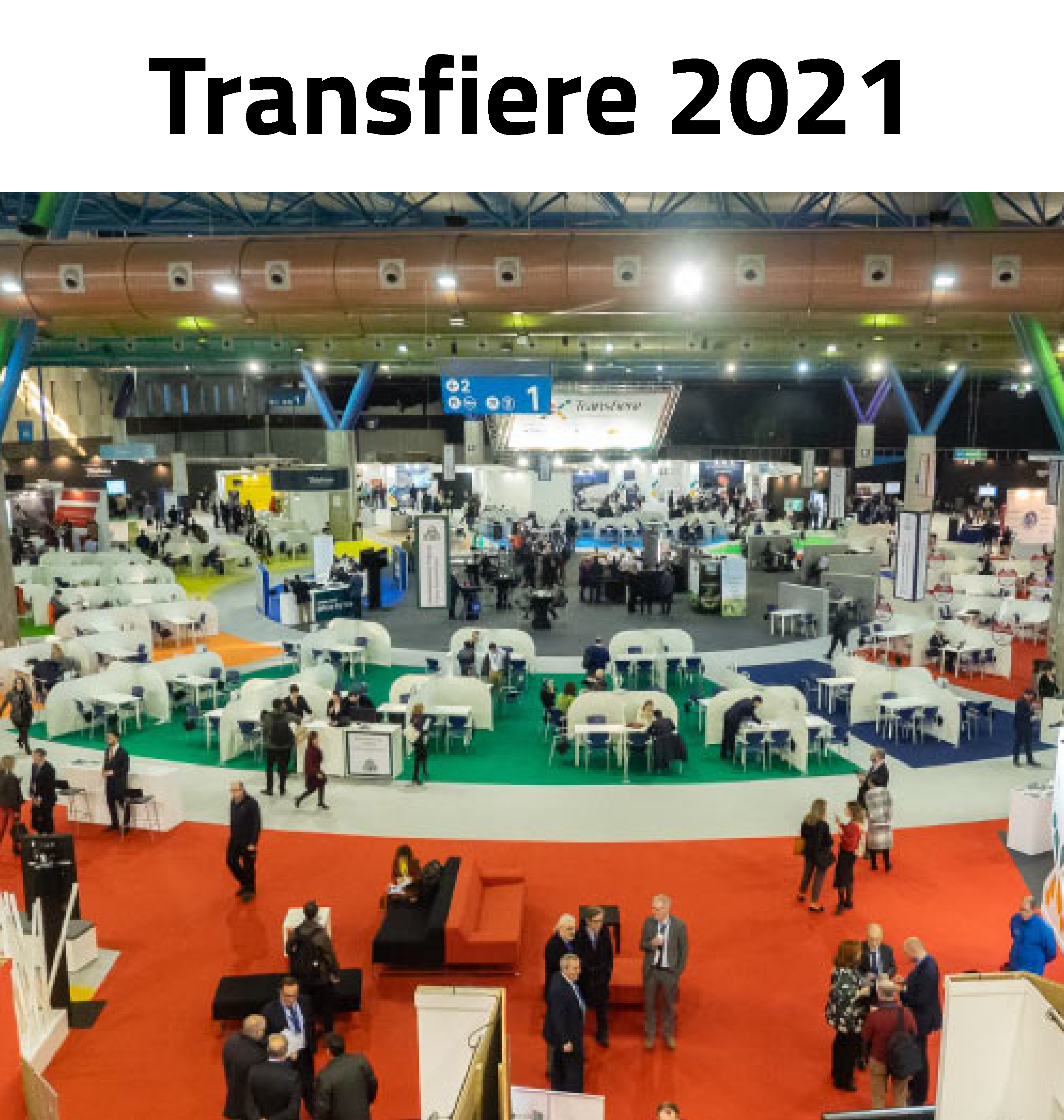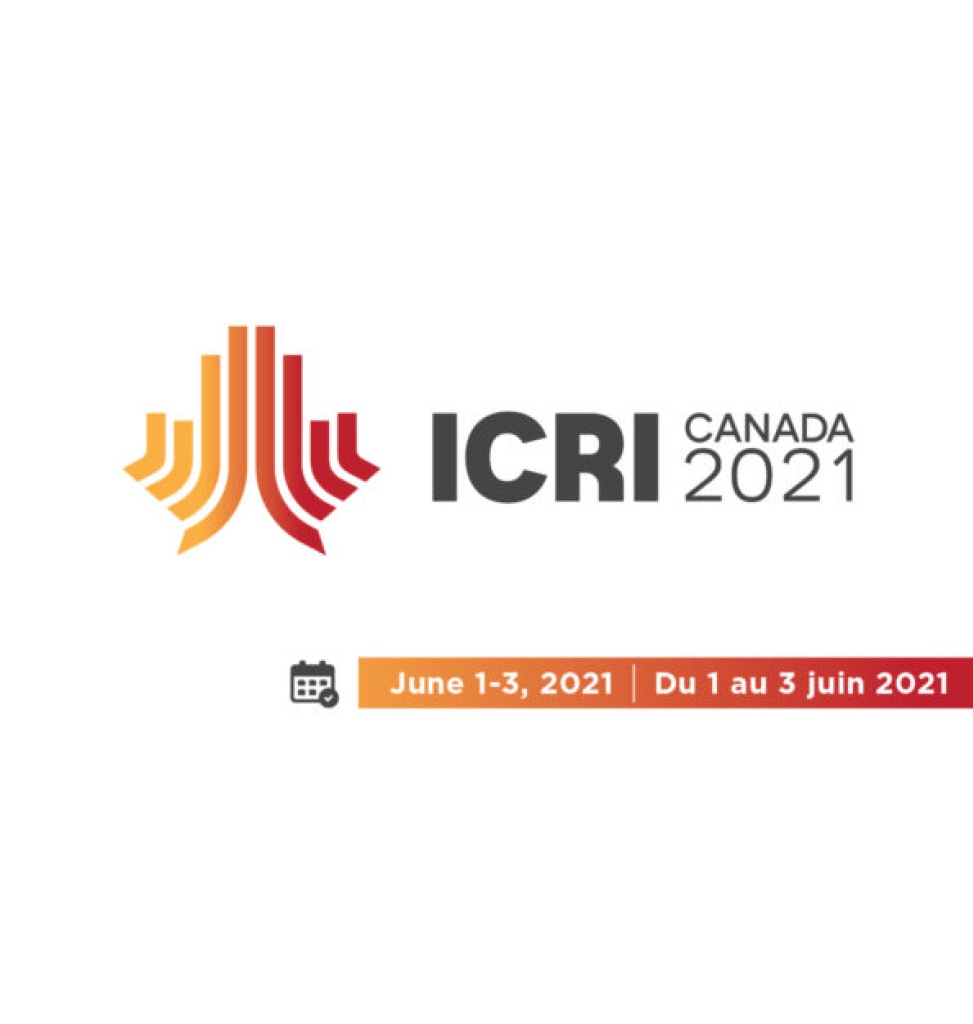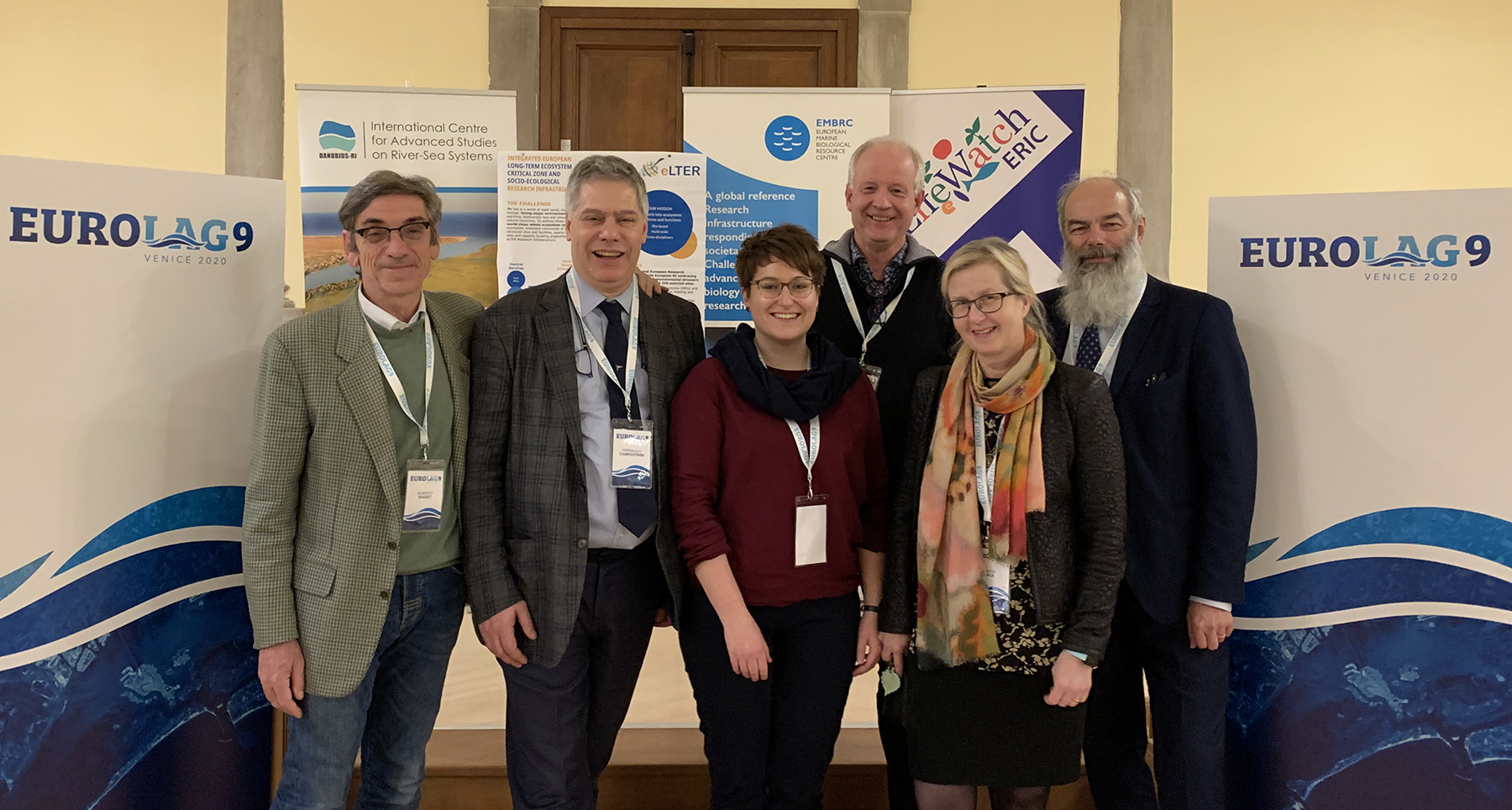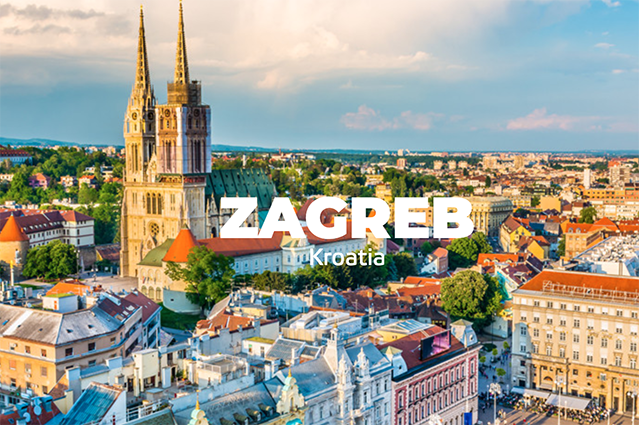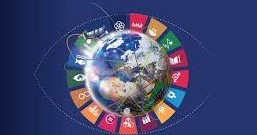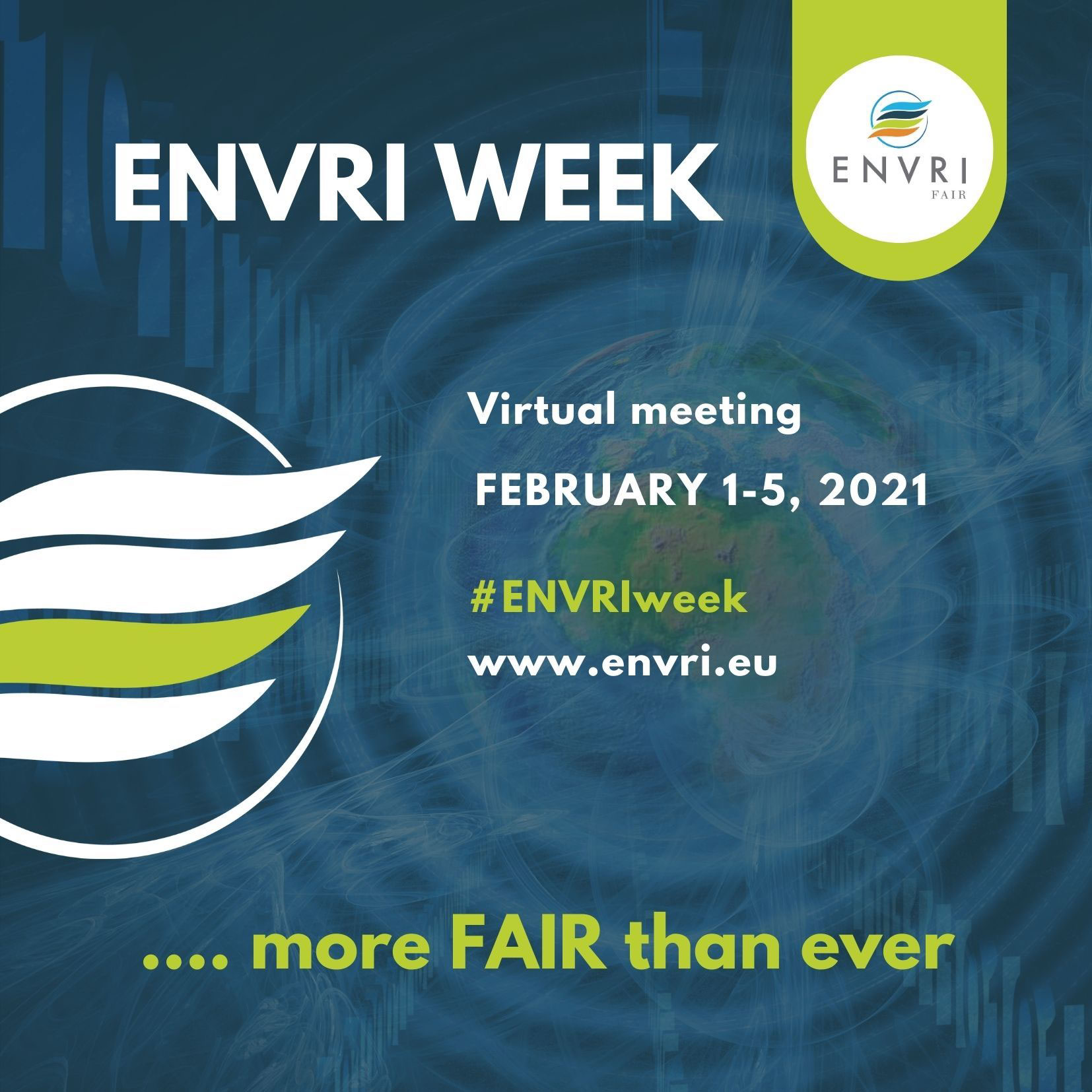As a ENVRI-FAIR side event at the Research Data Alliance’s 17th Plenary Meeting, the ENVRI community is offering a co-located virtual event, the ENVRI-Hub for EOSC and Planet Earth to discuss the importance of FAIR data, data services and Open Earth System science in addressing this century’s environmental challenges.
Continue readingTransfiere 2021
Málaga, 14-15 April 2021. Transfiere is the major meeting on Research+ Development+ Innovation in Southern Europe, sharing scientific and technological knowledge to promote innovation and connect science and business. It is a key professional and multisectoral forum for knowledge transfer, business and networking opportunities, and economic competitiveness.
#transfiere2021 has the distinction of being the first face-to-face meeting of the year at the Trade Fair and Congress Centre of Málaga (FYCMA), which is implementing a rigorous protocol of specific health and safety measures.
Don’t miss this opportunity to promote innovation between research groups and companies while contributing to the competitiveness of the business sector. Being part of Transfiere allows you to build networks, develop synergies and knowledge sharing practices, and connect with different a range of actors and strategic sectors of the economy.
See the programme here and click here to register.
ICRI Canada 2021
The International Conference on Research Infrastructures (ICRI) brings together policy experts, facility managers, leading researchers and a variety of other stakeholders to discuss challenges and emerging trends for research infrastructures around the world.
Continue readingEuroLag 9 2020
Venice, Italy, 20-24 January 2020. The EuroLag 9 International conference is devoted to science, research and management issues related to lagoons and transitional areas, The 2020 conference is appropriately located in Venice.
The venue – the Scuola Grande di San Marco, founded in 1260 – is located in the heart of the old city and will only hold a maximum of 200 people, and registrations close on 15 December.
The conference is organised by the Institute of Marine Sciences (ISMAR) of the Italian National Research Council, the Consortium for Lagoon Research (Corila), and the University of Venice Ca’ Foscari. The five days of themed sessions and poster events on coastal lagoon science will be complemented by special guided visits to Venice and an exclusive, private (no tourists!) visit to San Marco Basilica prior to the conference dinner.
Because of the limitations of space, organisation of meetings with international colleagues from all over the world is recommended either before (18-19 January) or after (25-26 January) the conference. Click here for the conference website and here for programme details.
ESFRI Meeting & Conference
Zagreb, Croatia, 19-20 March 2020. The 72nd Meeting of the European Strategy Forum on Research Infrastructures (ESFRI, ESFRI Executive Board and Working Group meetings, and e-IRG meeting) will take place in Zagreb, under the Croatian presidency.
The Council configurationis around competitiveness – COMPET – and is organised by the Ministry of Science and Education.
For more information, refer to the website.
Space and the 2030 SDGs
Online, 9 October 2020. Today, from 12:00 to 14:00, LifeWatch ERIC CTO Juan Miguel González-Aranda will feature in a discussion to frame the contribution of space applications to the attainment of the United Nations Sustainable Development Goals (SDGs).
By and large, space is not strongly referenced in the SDGs currently, and there needs to be a stronger articulation of the role and contribution of EU support mechanisms. Today’s workshop provides an opportunity to inform and educate the SDG leadership on how space fits in the overall scheme of delivering on the SDGs and Agenda 2030. The discussion, therefore will focus on broad technological principles.
The European Union, the United Nations and many other stakeholders have recognised the transformative nature of digital technologies and have committed to growing the digital economy globally. Clearly, this will comprise different applications and different manifestations in different parts of the world. This workshop will consider the theme of resilience in all its forms and how space can aid capacity building to achieve greater resilience, through the creation of partnerships and collaborations that will allow future space innovations to prosper.
Please register for this ScienceDigital@UNGA75 event here.
Agenda:
- 12h00 Declan Kirrane, Chair, ScienceDigital@UNGA75
- 12h10 Niall Smith, Head of Research / Head of Blackrock Castle Observatory, Cork Institute of Technology, Ireland
- 12h30 Thorsten Rudolph; AZO Space, Germany
- 12h45 Juan Miguel González-Aranda, Chief Technology Officer, LifeWatch ERIC, Spain
- 13h00 Francisco Colomer, Director, Joint Institute for VLBI ERIC (JIVE), Netherlands
- 13h15 Milind Pimprikar, CANEUS International, Canada
- 13h30 Oscar Horacio Aguilar Colindres, Permanent Observer for the Fund for the Development of the Indigenous Peoples of Latin America and the Caribbean (FILAC)
- 13h45 Discussion
- 14h00 Conclusion.
9th EuroGOOS International Conference
3-5 May 2021, online: 9th EuroGOOS International Conference | Advances in Operational Oceanography: Expanding Europe’s ocean observing and forecasting capacity. In recent years, major developments have taken place in oceanography, particularly in the enhanced networking and cooperation in ocean observing, modelling, data management, and ocean services to society. 2021 marks the beginning of the United Nations Decade of Ocean Science for Sustainable Development.
EuroGOOS is the European component of UNESCO’s Global Ocean Observing System, and their international conference takes place every three years. The conference provides a forum for a broad range of implementers and users of operational oceanography services, including marine scientists and technologists, private companies, and policymakers. The conference reviews the present ocean monitoring and forecasting capacities and oceanographic services, and identifies new science and technology priorities. It facilitates dialogue, experience sharing and future planning with both European and international partners and stakeholders, towards a more coordinated response to global challenges and societal needs related to seas and oceans. The themes for this virtual conference are:
- In-situ and remote sensing observations: towards a European Ocean Observing System (EOOS) in the framework of the UN Ocean Decade
- Ocean modelling and forecasting: extending and improving predictability: Global, regional, shelf and coastal forecasting systems, towards the Digital Twin of the Ocean, and
- Meeting end-user needs and supporting marine development.
Participation in the 9th EuroGOOS International Conference is free.
ENVRI Week 2021
Virtual Meeting, 1–5 February, 2021. ENVRI week is a week dedicated to Environmental Research Infrastructures. During the runtime of the ENVRI-FAIR project, it is organised once a year. ENVRI week hosts ENVRI-FAIR project related sessions as well as several other sessions targeting different groups of stakeholders.
ENVRI Week 2021 will take place, as last year, at the Hotel Elbflorenz in Dresden. More information about the meeting will come later this year. Don’t forget to follow the ENVRI-FAIR website for live event updates!
Environmental Economics: a Focus on Natural Resources
Online, 19-20 November, 2020. The second international “Environmental Economics: a Focus on Natural Resources” conference will take place on Zoom, 19-20 November. Organised by the Laboratoire d’Économie d’Orléans and the Labex Voltaire, with the support of the International Network for Economic Research and the Maison des Sciences de l’Homme, the conference will feature more than 50 articles, selected from the great number of submissions made form all around the world. There will be four keynotes:
- Anastasios Xepapadeas (Athens University of Economics and Business and University of Bologna): “Spatial Environmental and Resource Economics: An Overview”
- Lucas Bretschger (ETH Zurich): “Efficient climate policy based on resource economics”
- Luiz Awazu Pereira da Silva (Bank for International Settlements): “Green Swans as Global Risks”, and
- Richard Tol (Sussex University): “Testing the Dismal Theorem”.
Please click here for the conference website. For any enquiries please email the conference organisers.
